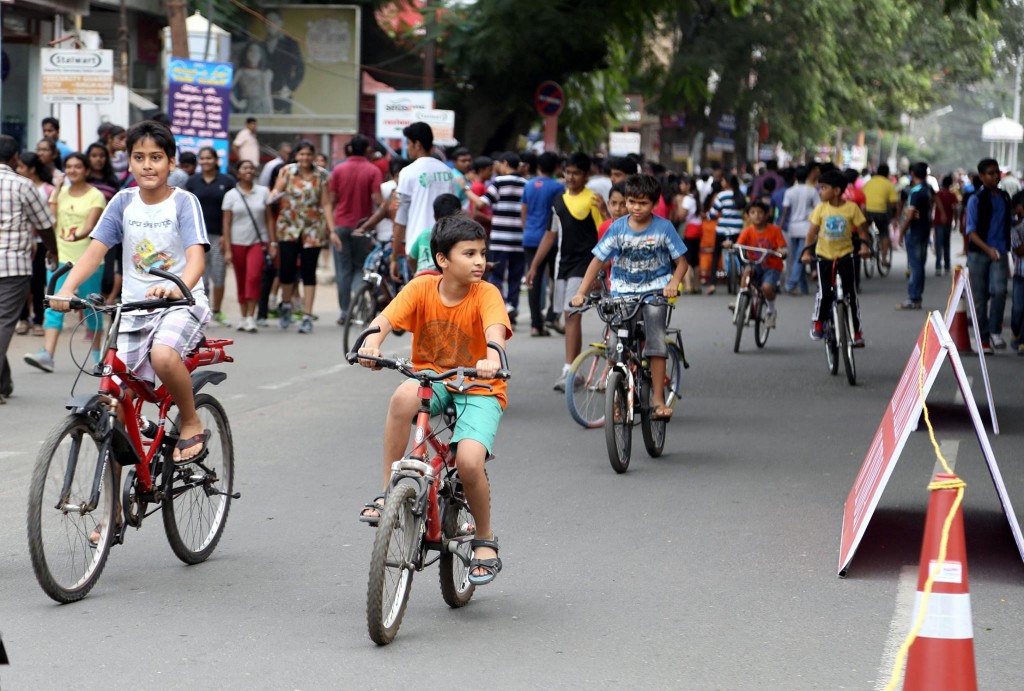In over 70 Indian cities, cars take Sundays off, too.
Not so long ago, bicycles were an integral part of the urban landscape in India. However, the increasing accessibility of motorcycles in recent years has left bikes behind. Streets are now bursting with cars and motorcycles, while pedestrians and bicycles are left with very little space on city streets.
Bogotá’s famous Ciclovía inspired Indian Car-Free Sunday, which is organised locally by various cities and communities. Closing streets in the city centre to cars every Sunday allows urban residents to own and use the free space, get involved in community activities, and gather in city centres to enjoy their city without the disturbance of dangerous and polluting motor vehicles. Recreational and community leisure activities take place in the temporary pedestrian areas, locals participate in dance classes, DJs and orchestras play live shows, first aid crash courses are given, and you can even get your caricature done, just like in any other pedestrian area around the globe. Starting in 2009 in Ahmedabad, more than 70 cities in India have since adopted the concept. The popularity of the event even encouraged some cities, such as Bhopal, to implement dedicated bicycle infrastructure and a bike sharing program.

(Photo above: The Institute for Transportation and Development Policy)
Especially considering the fast-growing population of cities in India, long-term solutions to reincorporate bicycles in urban mobility plans are essential. Greater bicycle infrastructure and road safety measures will help alleviate increasing congestion and air quality problems, and allow all citizens to move around more easily and efficiently. The success and scale of car-free Sundays in India demonstrates how the participation of the local community can be powerful in creating positive outcomes. It also reminds us that small-scale, localized initiatives are a necessary first step towards creating broader social change.
(Photo left: The Institute for Transportation and Development Policy)
Want our help?
Get in touch for more information on the Copenhagenize Index